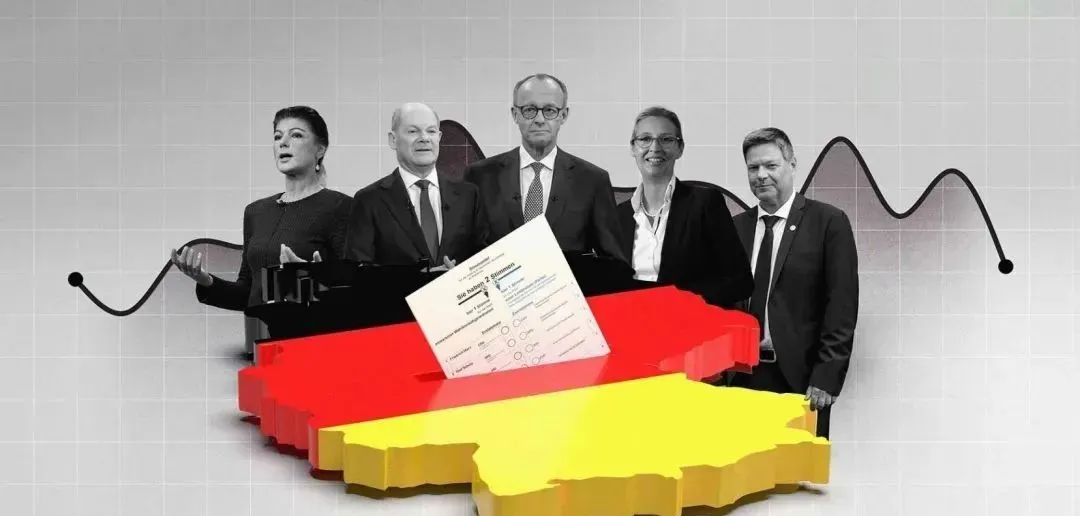
On February 23, 2025, the German federal election was held as scheduled. This election marked not only a major political turning point for Germany but also served as a concentrated reflection of the long-standing issues plaguing German society. Despite frequent changes in the chancellorship, three major challenges—immigration, the economy, and the Russia-Ukraine war—continue to dominate the political landscape.
First, immigration remains a painful issue for German society. In recent years, Germany has taken in large numbers of refugees, but problems related to immigrant integration and social security have grown increasingly acute. From the Aschaffenburg stabbing attack to Munich car-ramming attack, public anxiety sparked by immigration policies continues to intensify. Political parties remain divided on the issue: the CDU (Christlich Demokratische Union Deutschlands) advocates stricter border controls, the Greens insist on promoting refugee integration, and the far-right AfD (Alternative für Deutschland) calls for a complete border closure. Yet how to strike a balance between humanitarianism and public safety remains a long-term dilemma for the German government.
Second, economic issues have become the top concern for voters. Germany has experienced two consecutive years of negative economic growth, with the energy crisis and inflation placing increasing pressure on citizens' daily lives. Prices of basic goods like bread and butter have soared, leaving households struggling to make ends meet. Party platforms differ markedly in their economic policies: the SPD (Sozialdemokratische Partei Deutschlands) and the Greens advocate tax hikes and public investment to stimulate the economy, while the CDU insists on fiscal austerity and tax cuts. However, any policy must work within the constraints of the “debt brake” mechanism, significantly complicating implementation.
Lastly, the Ukraine crisis and its impact on German foreign policy cannot be ignored. As a leading power in the European Union, Germany faces intense pressure over its support for Ukraine. Although most parties support aid to Ukraine, they differ on the specifics. For instance, the Scholz government has refused to supply Taurus long-range missiles, while CDU candidate Merz favors increasing military support. Striking a balance between maintaining European security and avoiding further escalation is a long-term challenge for Germany's foreign policy.
In conclusion, the German federal election is not only a shift in political leadership, but also a renewed reckoning with long-standing, persistent issues. Whether it’s immigration, the economy, or the Russia-Ukraine war, these “ironclad problems” will not disappear with a new chancellor. What Germany needs is consensus and action that transcend party divisions in order to truly address these enduring challenges.
Author:Chen Zhuangying, Head of the Department of German Studies at Shanghai International Studies University (SISU), and Director of the Sino-German Center for Humanities Exchange at SISU.
Source:“Sino-German Humanities Exchange Research” WeChat Official Account, February 23, 2025.
Translated and reviewed by Zhang Yangyang with AI translator




